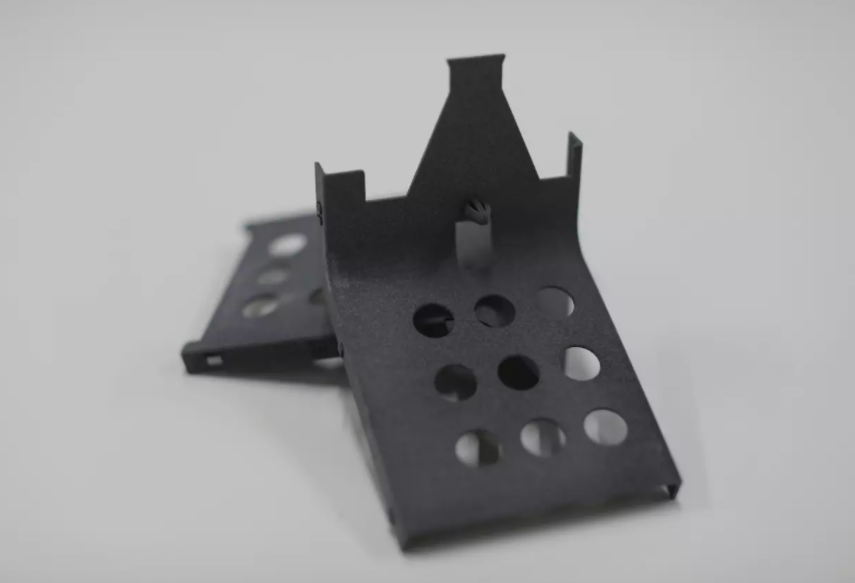Japanese manufacturer SOLIZE has worked with multinational printing firm HP to 3D print spare parts for heritage models from Nissan’s NISMO line of sports cars.
Using 3D modelling and HP’s Multi Jet Fusion (MJF) platform, SOLIZE’s engineers have been able to design and 3D print discontinued parts for vehicles such as the Skyline GT-R on-demand. Working as part of Nissan’s Heritage Parts program, the firms effectively demonstrated how the carmaker could benefit from digitizing its inventory, by reducing its warehousing costs as well as its industrial waste output.
“We are seeing leaders of industry like Nissan recognize the massive cost implications of storage, molds and logistics for replacement parts,” said Jon Wayne, Head of Global Commercial Business for 3D Printing and Digital Manufacturing at HP. “Digital manufacturing is a viable, long-term solution for accelerating production, transforming supply chains and activating industries such as automotive.”
“Together with SOLIZE, we are focused on helping businesses transform their manufacturing with sustainable, digital production.”

3D printing to boost GT-Rs
Set up in 2017, Nissan’s Heritage Parts program is designed to provide owners of legacy NISMO sports cars such as vintage versions of the Skyline and Silvia, with access to maintenance support. Having recently found that storing old components and discontinued molds can be expensive and inefficient, the carmaker reached out to HP and SOLIZE, as a means of rejigging the service’s inventory management.
Initially, SOLIZE worked with Nissan to identify which parts would benefit most from being 3D printed, before partnering with HP to optimize their design for use with MJF systems. Once printed, Nissan found the components to be of a high standard, and that they provided a significant cost saving compared to their conventionally manufactured equivalents.
In one test case, the engineers managed to 3D print a plastic harness protector for the R32 Nissan Skyline GT-R, out of HP’s High Reusability PA 11 powder. The part effectively showed the flexibility that can be achieved by switching to a digital inventory model, as well as the sustainability benefits of producing parts on-demand, rather than in anticipation of future client orders.
“We have jointly developed 3D printing technology with Nissan for commercial parts that have been discontinued, and taken charge of manufacturing the parts,” concluded Yasutoshi Kudo, President and CEO of SOLIZE. “With HP’s market leading 3D printing technology, we are able to support industries including automotive with sustainable production that delivers fast, high-quality and cost-effective results.”

Elsewhere, in software news, HP has announced that it’s integrating its 3D Application Programming Interface (API) into 3D Control Systems’ AM workflow program. The addition of API should effectively enhance the software’s performance when used with HP’s Fusion systems, optimizing job efficiency while providing users with more detailed data.
The move will also enable HP Jet Fusion users to connect directly with their systems through 3D Control Systems’ software, simplifying their device management and providing them with real-time updates on performance and efficiency. According to Michelle Bockman, CEO of 3D Control Systems, the software changes could help clients to rationalize their production workflow moving forwards.
“The ability to easily connect systems, receive important data and streamline workflow is critical to meet industrial-grade performance and quality requirements,” said Bockman. “We are excited to work with HP and take advantage of the API connectivity and support they are providing to the industry.”
Advances in digitized inventories
Digitized inventories allow manufacturers to produce spares on-demand, rather than holding onto them until they become obsolete, yielding potentially significant cost and efficiency savings. As a result, an increasing number of rail, defense and automotive firms are now seeking to switch to ‘just-in-time’ production.
3D printing software developer 3YOURMIND has been proactive in advancing digitized manufacturing, and launched its Digital AM Inventory module in October 2019. The add-on to the firm’s wider workflow program is designed to simplify production, and create a cost-efficient alternative to physical warehouse storage.
German railway company Deutsche Bahn (DB) has worked closely with 3YOURMIND to implement its workflow software, and create a ‘digital spare parts warehouse.’ By producing spares just in time for their deployment, DB aims to reduce its overall expenditure on vehicle repair, as well as the associated downtime.
In a similar project, the U.S. Army is working with a team from Wichita State University to create a digital twin of a UH-60 Black Hawk helicopter. Through the program, the engineers aim to create a 3D printable catalogue of all its components, allowing the Army to reverse engineer and produce its rarer spare parts on-demand.
To stay up to date with the latest 3D printing news, don’t forget to subscribe to the 3D Printing Industry newsletter or follow us on Twitter or liking our page on Facebook.
Are you looking for a job in the additive manufacturing industry? Visit 3D Printing Jobs for a selection of roles in the industry.
Featured image shows the racing version of the Nissan NISMO Skyline GT-R R32. Photo via Nissan NISMO.



